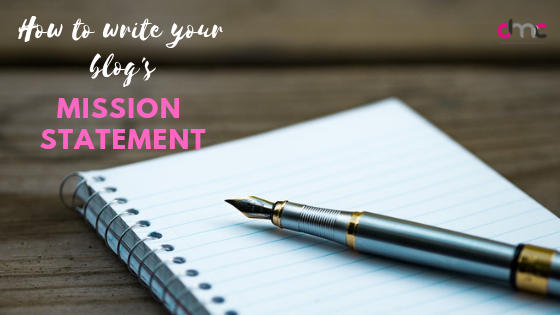How to write your blog’s mission statement?
Imagine a sailor in the olden days - would he set sail without his compass and map?
Not Vasco da Gama - no
Not James Cook - definitely no.
Jack Sparrow - maybe.
Your blog is a voyage too, helping people learn, acquire skills and knowledge and in the interim, helping you learn (and perhaps earn) as well.
But how can you stay on course if you don’t have a compass/ map?
Your blog’s mission statement is just that for you.
Having a mission statement is important and not just for anecdotal reasons.
Why do you need a mission statement?
1. Audience - content fit
If you don’t have a mission statement, you will not be able to reach out to the correct target audience with the relevant message. Let me explain with an example.
The mission statement of my blog is
Helping early stage marketers, entrepreneurs, and small business owners to understand & implement marketing better.
In the early stage of my blog, it was a broad commentary on marketing. I really hadn’t thought through the skill level that I should be targeting (beginner / intermediate / advanced). The content was also too broad and unfocused and all over the place. I was writing - but that writing was not relevant or contextual.
Compare it with this scenario: Had I proceeded to write the mission statement for my blog first, understood my target audience’s needs [read my post on How to identify your blog’s target audience], the content would have been much more focused.
Your blog’s mission statement would be:
My blog helps _____ do _____________
My blog enables __________ to learn more about ___________
You need to constantly align - realign your content to fit your audience’s need
Is this content relevant for your audience?
Or is it something that you are writing because you think they would like it / you are comfortable writing it
What outcomes should they expect post visiting your blog (learning something new / understanding something better)
2. Consistent focus
Ever seen a movie where you felt the storyline waxed and waned? Or felt that it veered from one genre to another?
That’s what lack of focus could do to your blog.
Your blog is one big story - and it needs to have one theme, one narrative. Of course, the allied bits, the sub-plots, the side stories do add depth and dimension, but they add to the overall arc of the story, never taking away from it.
We have all done it - posting content which was not aligned to the focus of our blog. This could be because of a demanding editorial calendar or not knowing what to post [with me, it has been both, on separate occasions].
For example, in the beginning, I did attempt writing a bit on advertising given my experience in this area. But I realized soon enough that:
- There were probably other writers / bloggers who were more authoritative and genuine experts in this field
- Even if I did write something on advertising, my readers would probably hop over to those blogs / websites anyway - either to get more info or for a deep dive [which I was not providing]
In retrospect, if I had had a mission statement for the blog, it would have been a much better pruning tool for me - simply don’t write content that doesn’t fit into your blog’s overall goals.
How do you write your blog’s mission statement?
A mission statement is like a navigational map, isn’t it? So, it should answer the who, what, why, when, how to help you chart your way forward.
What does your blog do?
When you are writing about “what your blog does”, think of outcomes.
What would you want your audience to take away from your blog?
What skills would they learn from your content?
What behavioral change are you looking to drive?
For example, if you have a baking blog, your “What” could be
Learn baking skills (outcome)
Bake confidently (behavioral change)
Know more about baking (take-away)
Who?
Who is the target audience for your blog?
Defining your target audience correctly is a very important activity for your blog. So much so, I have written one exclusive post on this - detailing how to choose your blog’s target audience [Choose, yes!]. Hop onto that post, if you like and let me know what you think.
Why?
Why do you blog?
Is it to create awareness (for yourself, for your product) ? Is to to generate visibility? Is it to effect change? To help people learn a new skill? Is it to put your ideas out there in the world
Whatever it is, this question “why do you blog” has to be answered from the perspective of your readers.
For example, I blog to make marketing fun and easy for everyone. I know there is a lot of content out there, but I am writing for that audience that is just starting out, with their blog, or setting up their businesses or looking to establish themselves. Hence my emphasis on making things easy and fun and comprehensible and lucid.
When?
Do your readers know how frequently do you blog? Is it mentioned in the introduction page of your blog? Are you consistent with your blogging schedule? Make sure your mission statement captures your publishing frequency, if possible.
How?
How do you plan to reach or achieve your objectives through blogging? Do you have a broader goal / vision on how your blog can help future readers? Instead of a transactional “read me” approach, try and outline how your blog contributes to the overall skill development of people in your profession (for example).
Putting it all together
Having a mission statement for your blog is absolutely essential. It is your north star or your guidebook to what your blog does, and could be. So before you begin writing another slew of posts, sit and write down your mission statement first.
Having a mission statement for your blog is absolutely essential. It is your north star or your guidebook to what your blog does, and could be. So before you begin writing another slew of posts, sit and write down your mission statement first.




Comments
Post a Comment